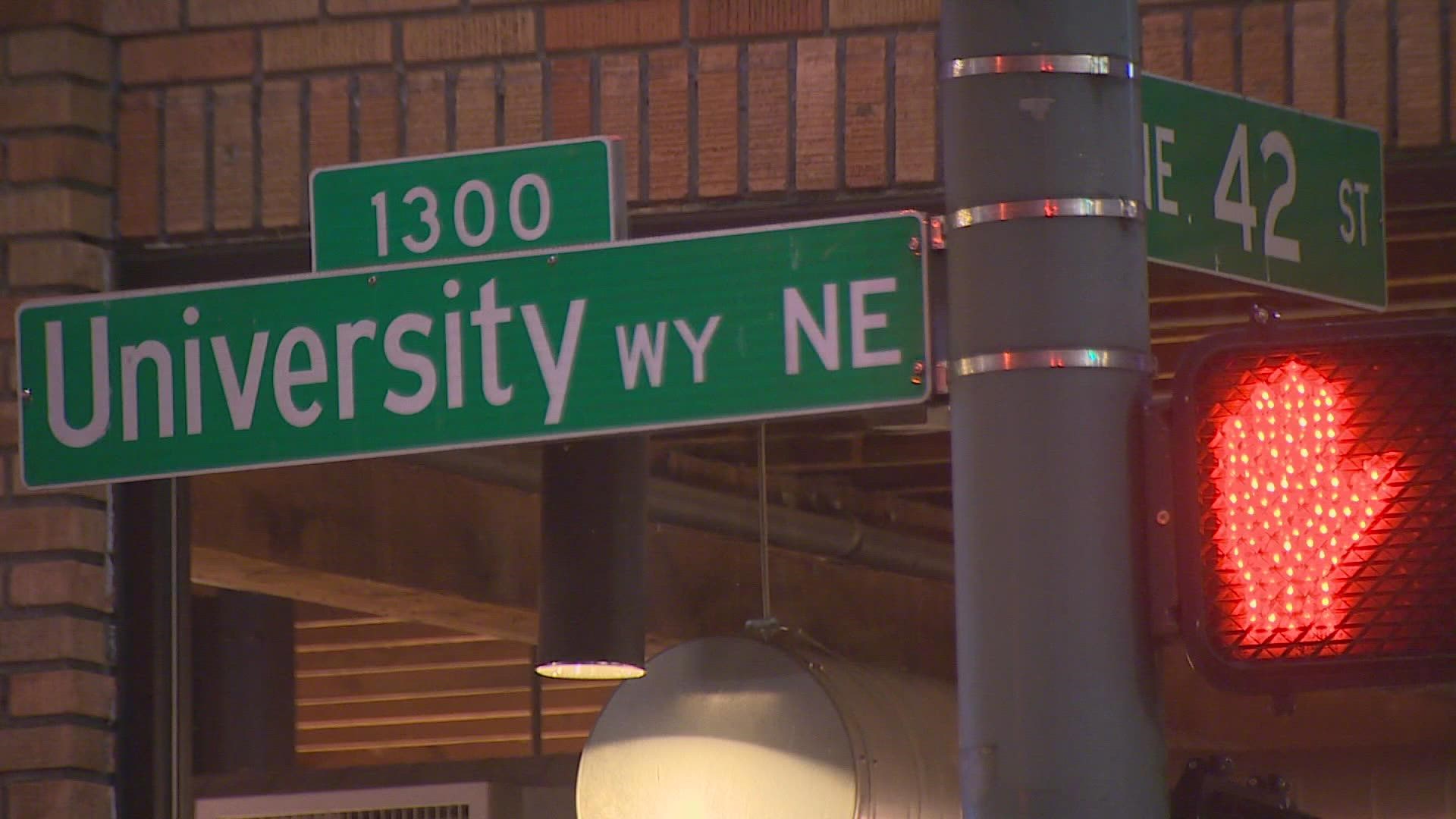SEATTLE — A group of students at the University of Washington are organizing around a proposal to implement alternative emergency response services through a pilot program in Seattle's University District.
"This isn't anti-police, it's pro-community," said Matthew Mitnick, a graduate student and co-sponsor of recently passed campus government organization legislation. "What this is doing is saying-- if you need services, who can best get you those services in the most efficient amount of time, and who can do so without... perpetuating the criminal justice system we have and creating the harm and inequities that so many face?"
The group is pitching a plan they say would create an alternative emergency response team that could be called to assist with non-violent situations that require help but not an armed officer.
"A lot of students, this is their first time away from home. If they're drinking or if there's perhaps an overdose, and a lot of times a lot of students are afraid to call for help, because they know if they're underage they can be cited," Mitnick said. "And if the police are the ones responding, it will create a situation where those calls are criminalized when they obviously shouldn't be."
The Alternative Emergency Services University District Pilot Program is still in its early phases; organizers say they're speaking with UW's Office of Regional and Community Relations and Evans School of Public Policy and Governance about what potential partnerships they may be able to form as they solidify program design work and a framework for studying the findings and results of the pilot.
They are also still working to secure funding for the response teams themselves. While they are still in the design phases, they expect those teams would include people with lived experience, either in conjunction with or in addition to mental health professionals and community paramedics.
Lifelong Seattle resident Pierce Bock said growing up in the community, there have been many calls for programs like this, and while there have been some attempts, there is no widescale alternative in place now. Bock said he believes alternatives to 9-1-1 could make more people comfortable asking for help in non-violent but emergent situations.
"Being Asian-American, I think ethnicity plays a huge role, because I've seen different friends that I've had, I've seen them react to police in different ways, and depending on what your relationship has been with the police before, and what you see in the news, I think that plays a huge role in how you view the police," Bock said.
Planners believe the U-District is a good place to start, and are requesting meetings with state and city officials to try to obtain funding for that pilot, but if it does come to fruition, they hope to use findings to expand the program, tailored to different neighborhoods.
"It's really important that you have people working with those on the ground that have been through those experiences, that know what they're going through, and can look at it from a culturally competent lens, and that's the unique opportunity this team has, to staff the response with those folks," Mitnick said.

